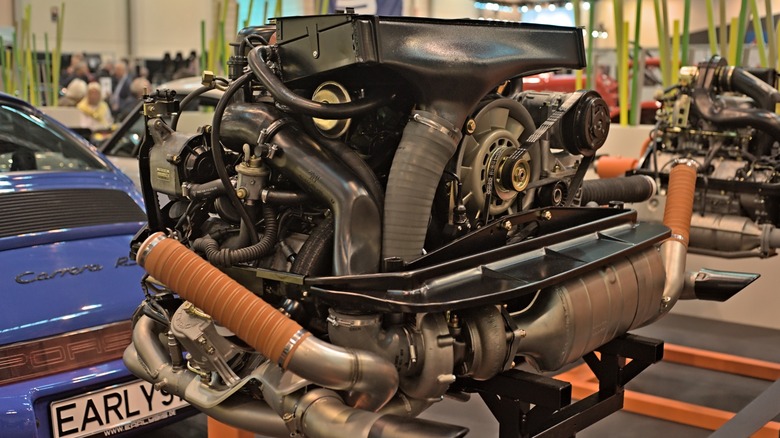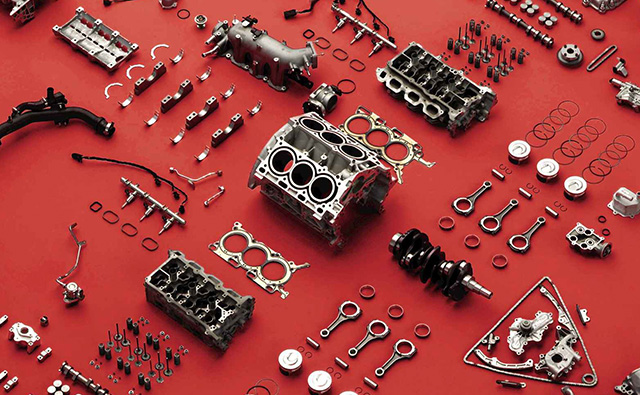Engines for Africa at Competitive Prices: Your Preferred Auto Components Shop
Engines for Africa at Competitive Prices: Your Preferred Auto Components Shop
Blog Article
The Impact of Innovative Engine Technologies on Power Efficiency and Environmental Sustainability
In the world of transport and commercial machinery, the constant mission for enhanced energy performance and decreased ecological effect has actually led to considerable developments in engine innovations. From the progressive change towards electric and hybrid systems to the combination of turbocharging for enhanced efficiency, the landscape of engines is developing quickly.
Development of Engine Technologies
The development of engine technologies over the decades has been noted by constant innovation and refinement in search of improved efficiency and efficiency. From the early days of inner combustion engines to the cutting-edge hybrid and electrical powertrains these days, the advancement of engine technologies has actually been driven by a ruthless mission for improved fuel efficiency and reduced exhausts.
One considerable turning point in this evolution was the development of turbocharging and straight shot systems, which dramatically boosted engine power output while boosting fuel effectiveness. These modern technologies permitted smaller sized, extra light-weight engines that could provide the performance of larger ones without jeopardizing on efficiency.
Furthermore, advancements in materials science have resulted in the prevalent adoption of lightweight products such as aluminum and carbon fiber in engine construction. This has not just lowered overall car weight yet has actually likewise boosted engine performance by lessening energy losses linked with inertia and rubbing.
Advantages of Electric and Crossbreed Solutions
With the expanding focus on sustainability and energy effectiveness, what advantages do electric and hybrid systems offer in the realm of engine modern technologies? Electric and hybrid systems existing countless benefits that add to a more energy-efficient and sustainable future. Among the primary advantages is the significant reduction in greenhouse gas emissions contrasted to conventional inner burning engines. Electric lorries generate zero tailpipe emissions, resulting in improved air top quality and lowered environmental effect. In addition, electrical and hybrid systems are much more energy-efficient, transforming a greater percentage of stored energy right into propulsion compared to conventional engines. This performance causes reduced energy usage and operating costs over the vehicle's lifetime. Additionally, electric vehicles provide regenerative braking systems that capture and store power generally lost during braking, further improving power performance. Crossbreed systems combine the benefits of electrical propulsion with the flexibility of a combustion engine, providing expanded minimizing and driving varieties range anxiousness for customers transitioning to electric cars. On the whole, hybrid and electrical systems play an important role ahead of time power performance and environmental sustainability in the transport field.
Turbocharging for Improved Efficiency
Innovative engine technologies like hybrid and electrical systems have led the way for developments in automobile effectiveness, with turbocharging arising as a vital method for boosting total efficiency and sustainability. Turbocharging works by using a wind turbine to require even more air right into the combustion chamber, allowing for much better gas combustion and enhanced power outcome without a significant increase in engine size. This process, recognized as forced induction, makes it possible for smaller sized, much more fuel-efficient engines to create power degrees equivalent to larger ones. By optimizing the efficiency of the combustion procedure, turbocharged engines can achieve improved gas economic situation and minimized emissions, adding to ecological sustainability. In addition, turbocharging improves engine responsiveness, giving vehicle drivers with a more vibrant driving experience. The prevalent fostering of turbocharged engines in both gasoline and diesel vehicles demonstrates their effectiveness in balancing efficiency, performance, and environmental impact. As vehicle manufacturers remain to refine turbocharging technology, its duty in advertising energy performance and sustainability in the transportation market is expected to grow additionally.
Harnessing Different Fuels
Taking advantage of different fuels presents an appealing method for lowering carbon discharges and diversifying the energy resources used in transportation. As the world aims to combat climate adjustment and decrease dependence on nonrenewable fuel sources, web link different gas have acquired considerable attention for their potential ecological and financial benefits.
Biofuels, such as ethanol and biodiesel, are originated from sustainable sources like sugarcane, corn, and algae, using a cleaner burning option to typical gas and diesel. These gas can be mixed with existing oil fuels or utilized in specialized engines, providing a path to reduced greenhouse gas exhausts and improve air high quality.
Additionally, hydrogen fuel cells have arised as an appealing innovation for zero-emission transportation. engines for africa. By transforming hydrogen gas right into electrical power to power electric motors, fuel cell cars generate just water vapor as a by-product, eliminating damaging tailpipe emissions entirely
In enhancement to lowering carbon emissions, alternative fuels can likewise boost energy safety by expanding the fuel mix and decreasing reliance on imported oil. find out this here Welcoming alternate gas in transportation is a critical action towards attaining a much more ecologically friendly and lasting future.

Future prospects and ecological benefits
The ecological advantages of alternate fuels and their possibility for lasting sustainability are essential factors to consider in the change in the direction of cleaner power sources. Different fuels, such as biofuels, hydrogen, and power, offer considerable ecological benefits contrasted to conventional fossil gas. These gas produce reduced degrees of greenhouse gas emissions, minimizing air contamination and mitigating climate adjustment impacts. Furthermore, alternative gas can help branch out power sources, boosting energy protection and reducing dependence on limited resources.
The future leads for different fuels in the transportation industry are promising. Innovations in technology continue to improve the efficiency and price of different fuel cars, making them extra obtainable to customers. Governments around the world are likewise executing policies to incentivize the fostering of alternative gas, better driving their development. As r & d initiatives increase, the potential for also greener and extra sustainable fuel options increases, paving the means for a cleaner and extra eco-friendly transport field. By welcoming alternate fuels and innovative technologies, the course towards a more lasting future comes to be increasingly attainable.

Conclusion
To conclude, cutting-edge engine innovations have played an important function in improving power efficiency and promoting environmental sustainability. engines for africa. The evolution of engine modern technologies, fostering of electrical and hybrid systems, usage of turbocharging, and exploration of different gas have all contributed to minimizing exhausts and increasing efficiency. The ecological advantages of these advancements are clear, and there is excellent potential for additional progression in the future. Engine technologies remain to be a crucial location of focus for accomplishing an extra sustainable future.
In the realm of transportation and commercial equipment, the continual pursuit for improved power performance and lowered environmental influence has actually led to considerable improvements in engine innovations. Turbocharging works by using a turbine to force even more air right into the combustion chamber, allowing for better fuel combustion and raised power output without a considerable boost in engine dimension. By maximizing Discover More Here the effectiveness of the combustion procedure, turbocharged engines can achieve better fuel economy and lowered exhausts, adding to ecological sustainability. Alternate gas, such as biofuels, hydrogen, and power, offer significant ecological benefits contrasted to standard fossil fuels. The evolution of engine technologies, fostering of hybrid and electrical systems, application of turbocharging, and expedition of alternative fuels have all contributed to minimizing discharges and boosting effectiveness.
Report this page